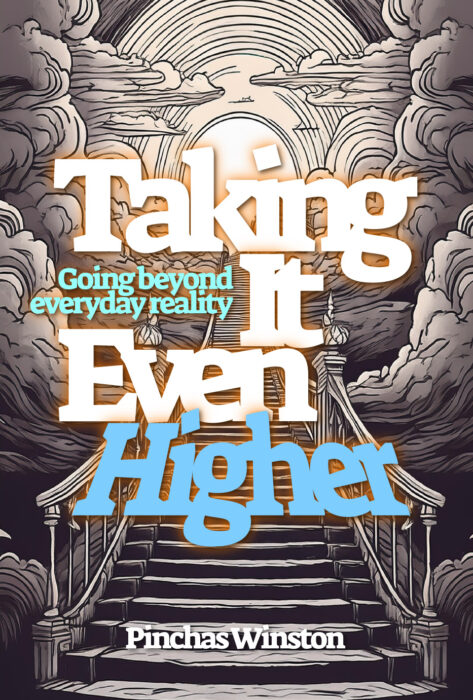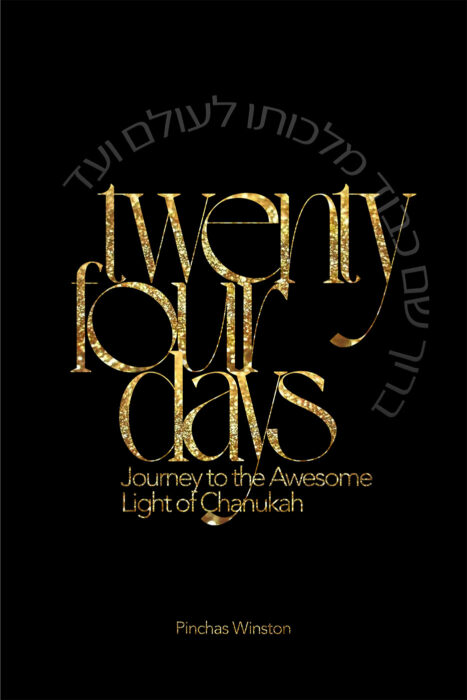Parashas Vayailech Shabbos Shuva, Issue #863 – By Pinchas Winston
Shoshana LazarEvil will befall you in the End-of-Days because you will do evil in the eyes of God, and will provoke Him to anger by what you do. (Devarim 31:29)
THIS VERSE WAS said by Moshe Rabbeinu in 2488, or 1273 BCE, 3,291 years ago. Here we are, now in 5779, 3,291 years later, living in that period of time he referred to as the “End-of-Days.” And, we can testify that, just as Moshe warned, evil has befallen us, the Jewish people.
Well, not this year, thank God, at least SO far. Right now it is relatively quiet for the Jewish people, compared to what it was like in the 1940s. Not that we don’t still provoke God by what we do. We CERTAINLY do. It’s just that, for some reason, God is having MERCY on us at this time and we should NOT take it for granted.
Because it is not. It is not “granted.” In fact, it may only be the calm before the storm. There still IS one more “War of Gog and Magog” left to go—there are supposed to be THREE historically—with the last being the worst ever. Even if WE can’t see How. Even if WE can’t see WHEN.
Yes, there IS the possibility that it has already happened. But, if it had, wouldn’t we have known about it if it did? A major world war is not something happens outside of one’s peripheral vision. Something as big and devastating as a major international conflict usually takes Center Stage when it occurs.
UNLESS, that is, it didn’t happen all at ONCE.
As the Vilna Gaon explains in a few places, there is also the installment plan. That’s where God takes a major unbearable suffering and divides it up into a lot of smaller bearable sufferings that are spread out over centuries, or even just decades.
He wrote THAT before there had ever been a Holocaust like the one in World War II. Anti-Semites before that had the will for one, but not the technology to pull it off. We needed the Industrial Revolution and all the advances since for that.
Since World War II, most of the “noise” has been in Israel. Most of the Jewish suffering has been there, fending off enemies that will stop at nothing to end the Jewish State. Has it been enough to constitute the FINAL War of Gog and Magog, or at least MOST of it?
Some would like to believe that the war has been an ideological one. We have been at war spiritually, and there is certainly a lot of truth. The casualties have been spiritual, and horrific. The Jewish American assimilation rate, we are told, is at LEAST 80 percent, with 1 in 2 Jews marrying “outside.”
This has been called, appropriately, a SPIRITUAL Holocaust. And, as many point out, it is much BETTER, from a World-to-Come perspective, to die PHYSICALLY as a Jew than for a Jew to die SPIRITUALLY. So, maybe the final War of Gog and Magog is a spiritual one that is affecting countless Jews AROUND the world, and of which so few know or appreciate.
Let’s face it. When conventional war occurs, EVERYONE knows about and follows it anxiously, UNTIL it is over. When a spiritual war occurs, like the one we are currently fighting, many people may know about it, but few care much about it, if it is not affecting their family personally. For the most part, people relate a lot more to PHYSICAL pain than to SPIRITUAL pain.
In fact, physical war usual evokes feelings of sympathy for the victims. Spiritual war can actually make the “victims” seem like “enemies.” Jews who assimilate or intermarry can be looked upon as traitors to the nation, and evoke anger and delight when they fail. They only get sympathy from others who understand how they became so disenfranchised from the Jewish people.
But here’s a point to consider. What does GOD say about them? How does God look at their lives? He knows who they are, what they have been through, and what can truly be expected from them given all the factors that make them who they are today.
From our perspective, they may appear whole and happy, which makes it hard to feel bad for them. From God’s perspective, however, they may be more like handicapped people running the same race as people without the same hindrances. From HIS perspective, their lack of commitment to Torah may be forgivable, whereas ours may make us culpable. We just don’t know.
Of the many things that still haunt me about the Holocaust, the one that unsettles me the most is how Divine Providence arranged it that religious and non-religious were made to look alike in the camps, and suffer the exact same inhumane conditions. No one expected the Nazis to show more or less respect to the religious than secular Jews. But they only worked for God; they were HIS instruments of Divine justice at that time. Siblings can lord themselves over one another, but parents love all their children the same.
Of course there is a big difference between someone who performs mitzvos and someone who doesn’t, certainly with respect to reward in the World-to-Come. But we don’t all start off from the same place in this world, and many secular Jews, even if they were once religious, given OUR paths in life, might have ended up living by Torah more devotedly than we do. We just don’t know.
What we do know is that when we don’t judge others to the side of merit, or show the proper amount of sympathy and empathy towards others less fortunate than us, physically OR spiritually, then it reflects badly on us. And THAT can turn a spiritual war into a physical one as well, God forbid.
It is no small matter that we enter Yom Kippur by first making a point of forgiving others who have wronged us. “Tefillah Zachah” is such an important introduction to Kol Nidrei that people try and get to shul early enough to say the whole thing. The wrong was the wrong, and the person will have to answer to GOD for having committed it, but not to US. We just don’t know enough to properly judge the offender for what they have done. No matter how hard we try to wear their shoes, they will never fit just right.
Recently, it finally occurred to me why the Arizal placed such an emphasis on people accepting upon themselves the mitzvah to love others as they do themselves upon entering shul. Why not when we first wake up? Why specifically upon coming to pray?
Because, you notice people’s idiosyncrasies a lot more when praying in the same minyan, and they can be VERY annoying. Without realizing it, such annoyances can cause a person to mentally and emotionally “separate” themselves from such people, spiritually breaking up the minyan, so-to-speak. Communal prayer is supposed to be just that, communal, and harboring negative sentiments towards others interferes with that.
But, it is next to impossible to love an “annoying” person unless you first judge them to the side of merit, another mitzvah. You have to be able to say to yourself, “I would never do what they are doing. But maybe they have a reason for doing it, one that is not relevant to me, but is to them.”
The crazier the world gets, the more idiosyncratic people become. It makes this mitzvah harder, but that only increases our merit in Heaven. And, merit is what we need in life, especially at this time of year, ESPECIALLY to hold off or prevent any evil coming to the nation at these End-of-Days.
It’s a given that we’re going to beg God for forgiveness for our sins against Him. It’s right there in the Machzorim. But, our greatest merit may come from what’s NOT really there, and to borrow the language of the Talmud: Just as you have judged others to the side of merit, may God always judge you to the side of merit.
Gmar Chasimah Tovah.
Pinchas Winston
Thirtysix.org
Download The PDF Version




















